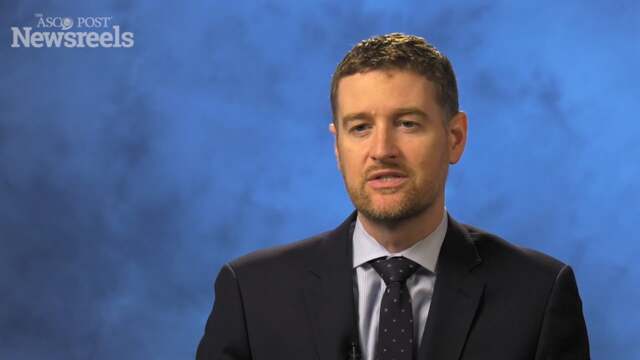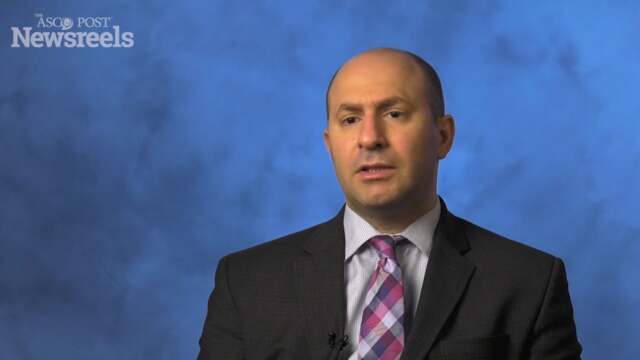Brian C. Allen, MD, on Assessing Tumor Response: Standard-of-Care vs Computer-Assisted Evaluation
2017 Genitourinary Cancers Symposium
Brian C. Allen, MD, of Duke University Medical Center, discusses the benefits of using a computerized process that provides step-wise guidance, decreases interpretation time, and reduces errors when measuring tumor response to treatment. (Abstract 432)
Rana R. McKay, MD, of the University of California, San Diego, discusses study findings on PD-1/PD-L1 responders with metastatic renal cell carcinoma who discontinue therapy for immune-related adverse events. (Abstract 467)
L. Michael Glodé, MD, of the University of Colorado Cancer Center, discusses study findings on adjuvant androgen deprivation vs mitoxantrone plus prednisone plus ADT in high-risk prostate cancer patients following radical prostatectomy. (Abstract 2)
Joshua M. Lang, MD, of the University of Wisconsin Carbone Cancer Center, discusses genomic alterations in DNA damage–repair pathways––more common in patients with prostate cancer than previously recognized–– and clinical trials with PARP inhibitors.
W. Marston Linehan, MD, of the National Cancer Institute, discusses the genetic basis of the different types of kidney cancer, which provides the key to clinical management.
Toni K. Choueiri, MD, of the Dana-Farber Cancer Institute, discusses a single-arm biomarker-based study of savolitinib in patients with advanced papillary renal cell cancer. (Abstract 436)





